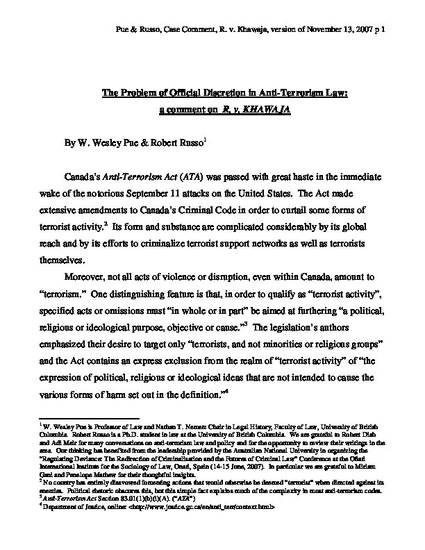
- terrorism; rule of law; overbreadth; constitution; vagueness; racial profiling
This paper assesses the first judicial ruling on key provisions of the Anti Terrorism Act. Rutherford J.'s ruling struck down provisions creating a motive requirement in the definition of terrorist activity while upholding the overall structure of the act against challenges on the basis of overbreadth and vagueness. A fault-line divides the two sides of the ruling. On one side the court looked to the lived-experience of legal rules, concluding that including motive requirements would mislead officials in the direction of improper and unconstitutional racial or religious profiling. On the other side of the fault-line the court restricted itself to the realm of superior court adjudication, without concern for the real-life conduct of officials attempting to give meaning to vague and broad statutory language. This paper argues that a dose of realism should be intruded into constitutional adjudication on overbreadth and vagueness and that the rule of law is fundamentally compromised without.
